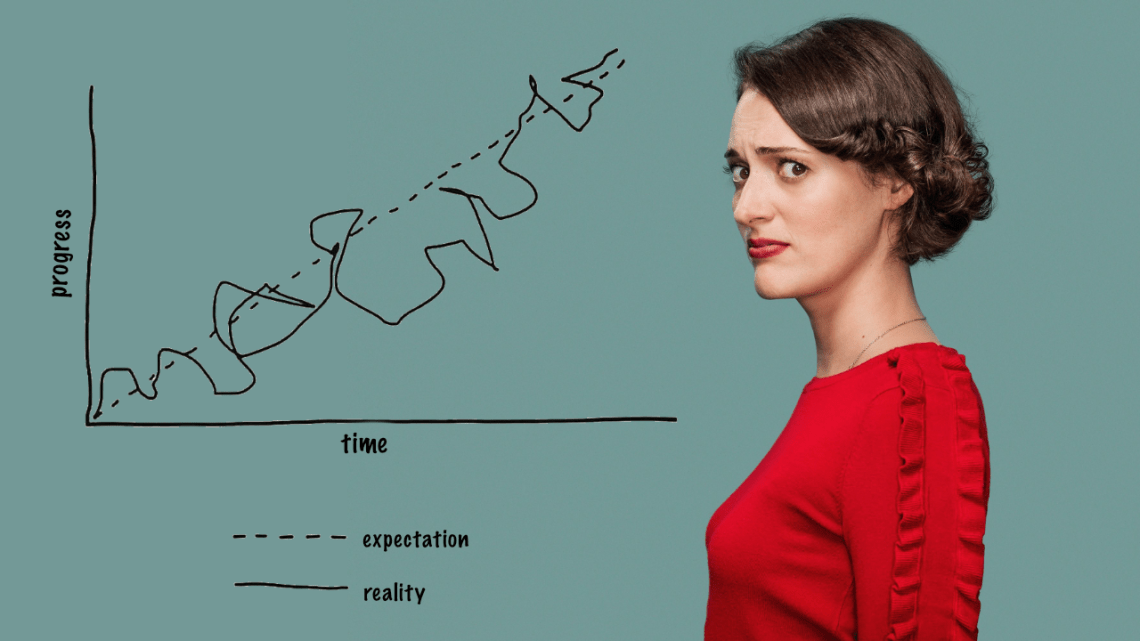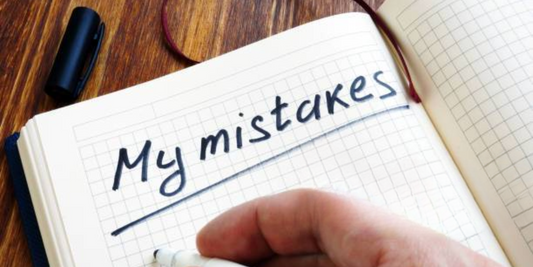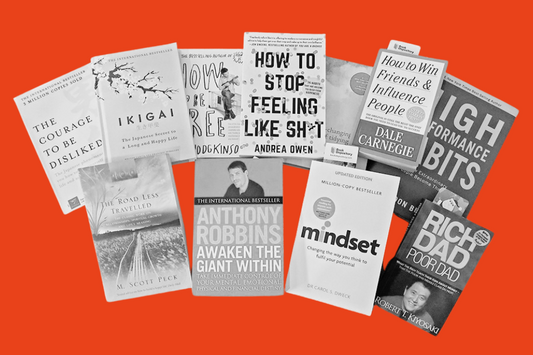Many of us have recently grasped the concept of a wavy line representing mental health and its progress – understanding that progress is never straightforward, it has constant ups and downs. But in the media we consume today, the depiction of mental health, and concepts like loss, trauma and grief are always shown as ‘a period of time’ of sadness, before the character is back to their ‘normal’ selves usually by having a revelation to ‘learn and do better’. Media gives us an overview of pain or sadness as feelings that come once and are gone forever. Yes, we can heal from pain and sadness, but unlike the portrayal in mainstream media, it does not ‘just disappear’ – a reminder of loss and sadness might still be around the corner. Fleabag is one of the few drama series that showcases this in its truest sense.
A BBC comedy-drama series, Fleabag, is about a quirky, funny and independent woman in her 30s, who resides and owns a cafe in London. She’s trying her shot at “adulting” independently in a big daunting city, alongside an almost ‘perfectly settled’ family, while also grappling with her depleting mental health due to major losses she experienced in life. The character (called ‘Fleabag’, since she is never really addressed by any name in the show) feels a mixture of grief, heartbreak, pain and trauma due to her circumstances and her past.
“I have a horrible feeling I am a greedy, perverted, selfish, apathetic, cynical, depraved, morally bankrupt woman who can’t even call herself a feminist.”

“Either everyone feels like this and they’re just not talking about it or I am completely alone.”
-Fleabag
Another lesson of dealing with grief from Fleabag (which was very personal to me) was the myth busting of the time-frame associated with grief. The notion that anyone going through a loss (of any kind or intensity) is meant to grieve for a certain time before they go back to ‘normal’ lives. They are told to forget, to move on, ‘learn the lesson’ and get better. But the depiction of loss, death and pain in Fleabag had an effect and still affects the characters in many different aspects of their lives – which might be intrinsic to them but is quite evident in the show. This paints the picture of realistic healing, and the actual emotional labour that goes into dealing with a valuable loss. Easing into daily life after a loss (big or small) is a continuous process with ups and downs. A loss means creating a whole ‘new normal’ in itself. Fleabag’s flashbacks, memories with the person, talking about them, or (knowingly or unknowingly) keeping something with her that represents them, would always elicit an end number of reactions from her. Yes, sadness, guilt, anger and hopelessness, but sometimes, even happiness of having those memories safe with her in her mind.
I want someone to tell me what to wear every morning. I want someone to tell me what to eat, what to like, what to hate, what to rage about, what to listen to, what band to like, what to buy tickets for, what to joke about, what not to joke about.
In the show, Fleabag has no big revelation that ‘marks’ her healing process or makes her better. Her feelings are always at war with one another, and she’s always confused about how to act on them. But, she takes one step at a time towards being more self-aware of these feelings. Does that mean her feelings completely go away in the end? No. Just like us, her healing process is not linear either. She has moments of feeling worn down, sad or in pain but she also has moments of hope, happiness, love, lust and joy. Instead, her emotional growth is visible through what she learns in different experiences, and the decisions she makes in the long run.
She gradually proceeds from shoving emotions under the rug with her humour to letting people into her life, with honesty. As a character who sought validation, and enjoyed sex because she liked “the need (others had) to want her body”, she got more accustomed to allowing people into her lives, and validating her for more than just her physical appearance. There was a gradual shift from being closed and reluctant to being more accepting, and building trusting relationships again.
By the end of the show, one might still perceive Fleabag as a funny, quirky woman who keeps making a fool of herself, and ends up complicating her life every step of the way, but what you also see is a woman who walked away from her audience (or who she identified as friends), emotionally stronger and a tad bit wiser – someone who could express herself better, be more vulnerable, and come to terms with her past and present self. The pain and sadness never left her but she learnt to accept it as feelings that were always around the corner.





